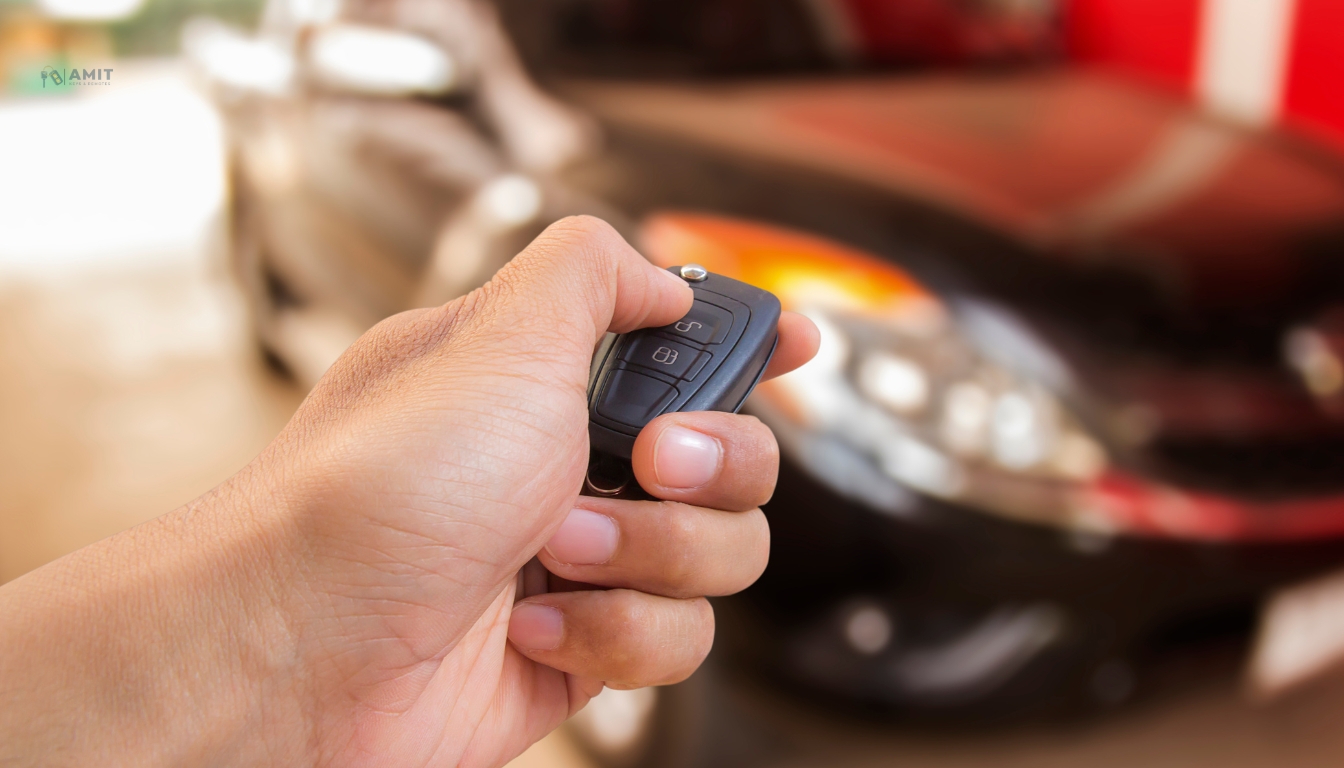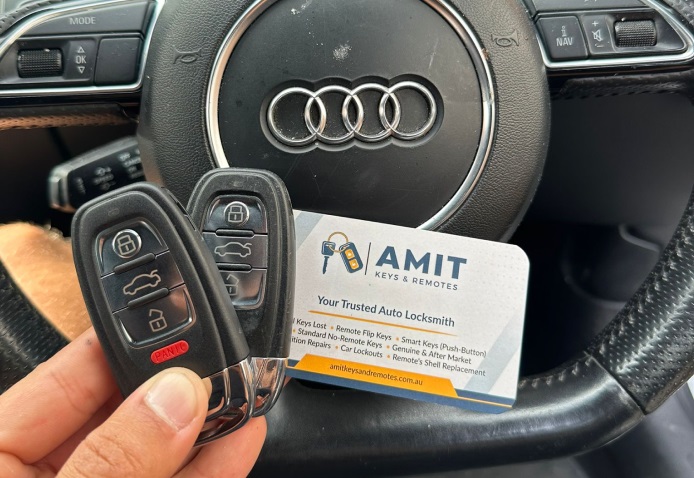
Remote Key vs Key Fob: Which Is Right for Your Vehicle?
Introduction
In today's fast-paced world, vehicle security has evolved dramatically. With the advent of technology, remote keys and key fobs have become pivotal in how we access and secure our vehicles. However, many car owners find themselves pondering a crucial question: Remote Key vs Key Fob: Which Is Right for Your Vehicle? This article delves deeply into the nuances of both remote keys and key fobs, examining their functionalities, advantages, disadvantages, and ultimately guiding you toward the best choice for your vehicle.
Understanding Remote Keys and Key Fobs
What is a Remote Key?
A remote key is a traditional key that often comes with an embedded transmitter. It allows users to lock or unlock their vehicles from a distance while also providing the conventional function of starting the engine. This duality makes remote keys versatile but sometimes less convenient than modern alternatives.
What is a Key Fob?
A key fob is a small device that communicates wirelessly with your vehicle's locking system through radio waves. Unlike remote keys that may resemble standard keys with additional buttons, key fobs typically have no physical blade unless they are designed as smart keys. They offer advanced features like proximity unlocking and integrated alarm systems.
Key Differences Between Remote Keys and Key Fobs
| Feature | Remote Key | Key Fob | |---------------------------|------------------------------------------|--------------------------------------------| | Physical Appearance | Resembles a traditional car key | Small electronic device | | Locking Mechanism | Requires pressing buttons | Proximity-based or button activation | | Range | Limited range | Longer range due to radio frequency | | Additional Features | Basic functionality | Advanced features such as trunk release | | Compatibility | Older models | Modern vehicles |
How Do They Work?
Mechanism of Remote Keys
Remote keys utilize a simple radio transmitter that sends signals to the car's receiver to unlock or lock doors. The signal can travel only so far, limiting its effective use compared to more advanced systems.
Mechanism of Key Fobs
Key fobs operate on more complex technology involving encrypted signals. When you press a button on your key fob, it sends an encrypted signal to the vehicle's onboard computer, ensuring better security against unauthorized access.
Advantages of Using Remote Keys
Cost-Effectiveness
One significant advantage of remote keys is their affordability. They are typically less expensive than high-tech key fobs, making them an attractive option for older vehicles where advanced features may not be necessary.
Simplicity of Use
Remote keys are generally user-friendly. Pressing buttons to lock or unlock your vehicle does not require any special knowledge or training.
Disadvantages of Using Remote Keys
Limited Features
While remote keys serve their primary purpose well—unlocking and starting your car—they lack the additional conveniences offered by modern key fobs, such as trunk release or panic buttons.
Range Limitations
Most remote keys have a limited range; if you stand too far away from your vehicle, you might find yourself fumbling around trying to get in.
Advantages of Using Key Fobs
Advanced Features
Key fobs come packed with advanced features like proximity unlocking, which allows you to open your car doors just by approaching it—no need to even take it out of your pocket!
Enhanced Security
With encrypted signals and anti-theft mechanisms built-in, key fobs provide enhanced protection against hacking and unauthorized access compared to traditional remote keys.
Disadvantages of Using Key Fobs
Cost Implications
While they offer numerous benefits, key fobs can be quite expensive to replace if lost or damaged. Repair costs can also add up over time.
Battery Dependency
Key fobs depend on batteries for functionality. If the battery dies unexpectedly, you may be locked out until you replace it—leading to moments of frustration when you least expect it!
Choosing Between Remote Keys and Key Fobs: Factors To Consider
When determining whether to opt for a remote key or a key fob for your vehicle, consider these crucial factors:
The Installation Process: What You Need To Know
Installing A Remote Key
For many drivers who choose remote keys due to their simplicity and cost-effectiveness:
- Consult with automotive locksmiths specializing in door lock repair cars.
- You can also explore mobile car locksmith services that handle installation efficiently.
Programming A Key Fob
Programming a new key fob can often require specialized equipment:
- Many dealerships offer programming services.
- Alternatively, some automotive locksmiths possess the tools needed for auto remote control replacement without exorbitant costs.
Common Problems Faced With Remote Keys And Key Fobs
Regardless of what option you choose between Remote Keys vs Key Fob: Which Is Right for Your Vehicle?, common problems can arise:
Dead Batteries
Both devices rely on batteries; dead batteries can immobilize access.
Signal Interference

Mechanical Failures
The physical components in both devices can wear down over time requiring door lock repair services.
Loss Of Device
Misplacing either option leads directly to inconvenience; solutions include having spare car remotes on hand!
FAQ Section
1. Can I fix my car lock myself?
Yes! Basic issues can often be resolved by following DIY guides available online but be cautious about complex problems requiring professional input.
2. What if my remote key stops working?
If your remote isn’t functioning correctly after changing batteries or programming attempts fail; consult local automotive locksmiths who specialize in automotive door locks repair!
3. Are spare car remotes worth it?
Absolutely! Having replacement remotes ensures you're never caught off guard should something happen during critical moments—like being late for work!
4. How do I unlock my car without keys?
There are multiple methods such as using slim jims or calling professional locksmiths specializing in how to unlock cars without needing original keys!
5. How much does it cost for mobile car keys replacement?
Costs vary widely based on location & complexity; however market estimates generally indicate anywhere from $75-$300 depending on make/model/year so always check local pricing before proceeding!
6. Can I program my own automobile door locks?
Yes! Many newer models allow self-programming while some manufacturers require dealer intervention so checking specific manuals will save time/money later!

Conclusion
Deciding between a remote key and a key fob boils down largely to personal preference alongside practical needs such as budget considerations & usage habits! By weighing pros/cons carefully while considering specific requirements like security enhancements offered through technology—it becomes easier deciding which option suits lifestyle best! Ultimately understanding differences empowers consumers making informed choices whether repairing existing setups (fix car locks) versus exploring new options (replacement volkswagen keys). Whichever route chosen rest assured knowing both types deliver reliability essential keeping vehicles secure whilst navigating daily life seamlessly!